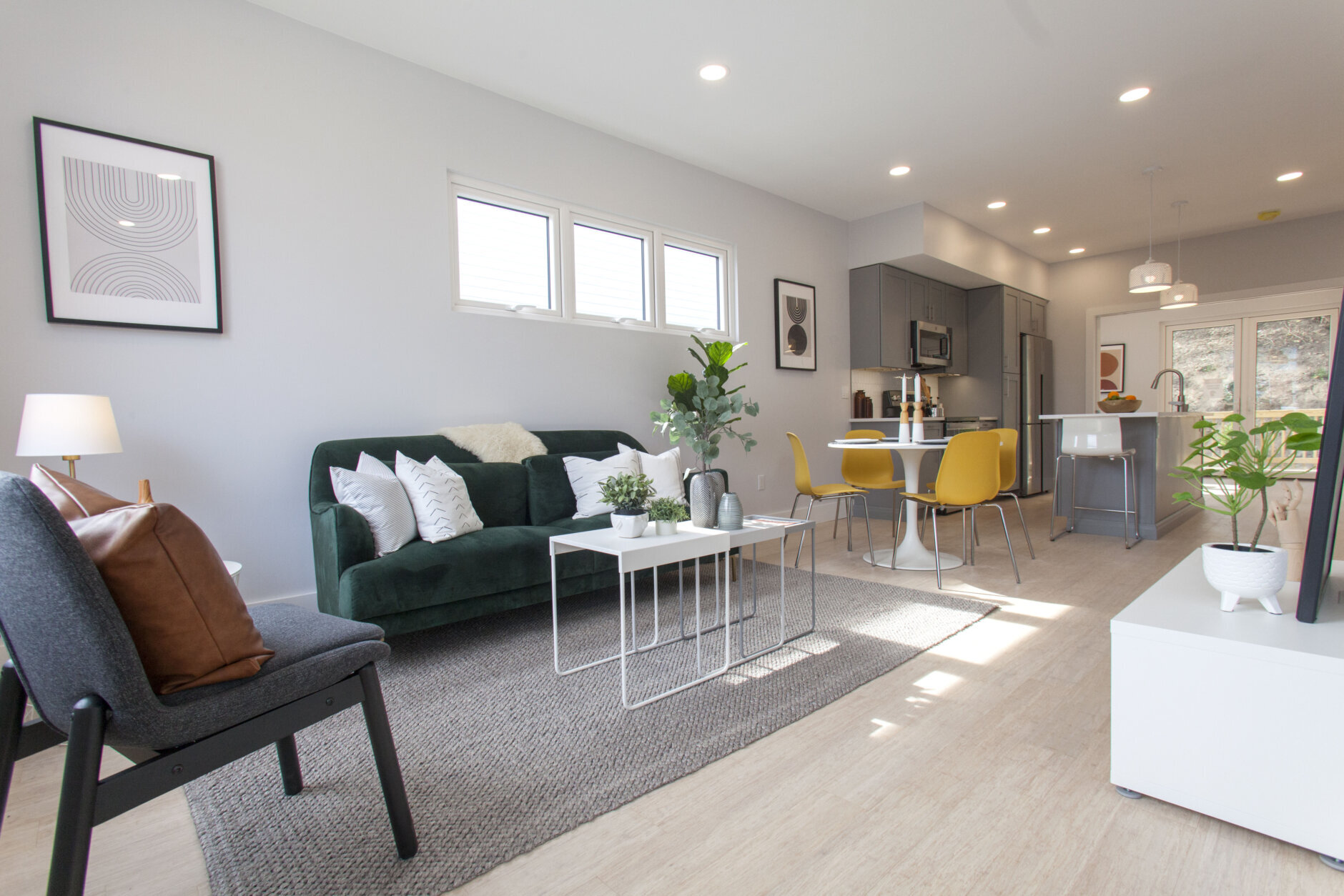
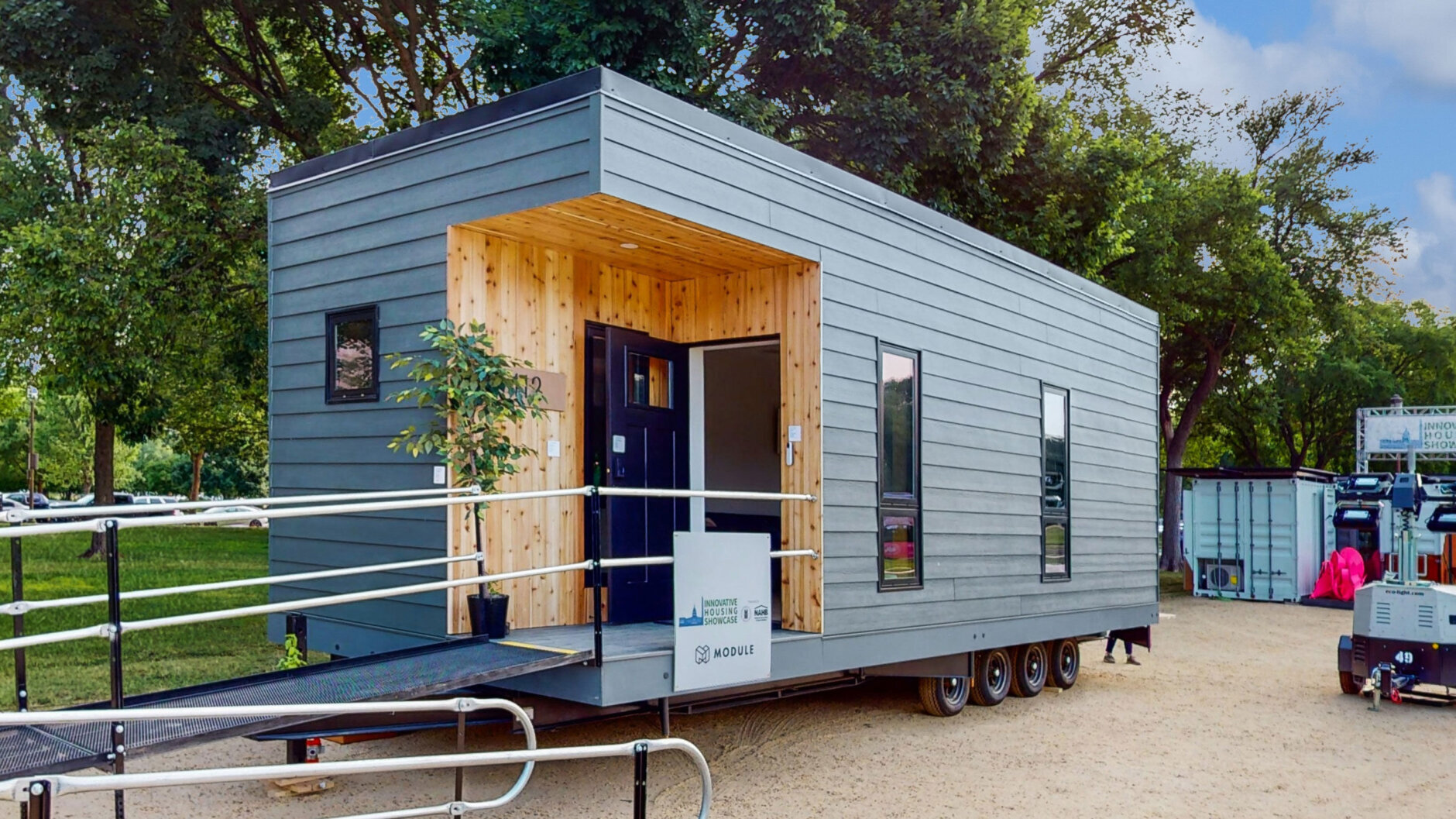
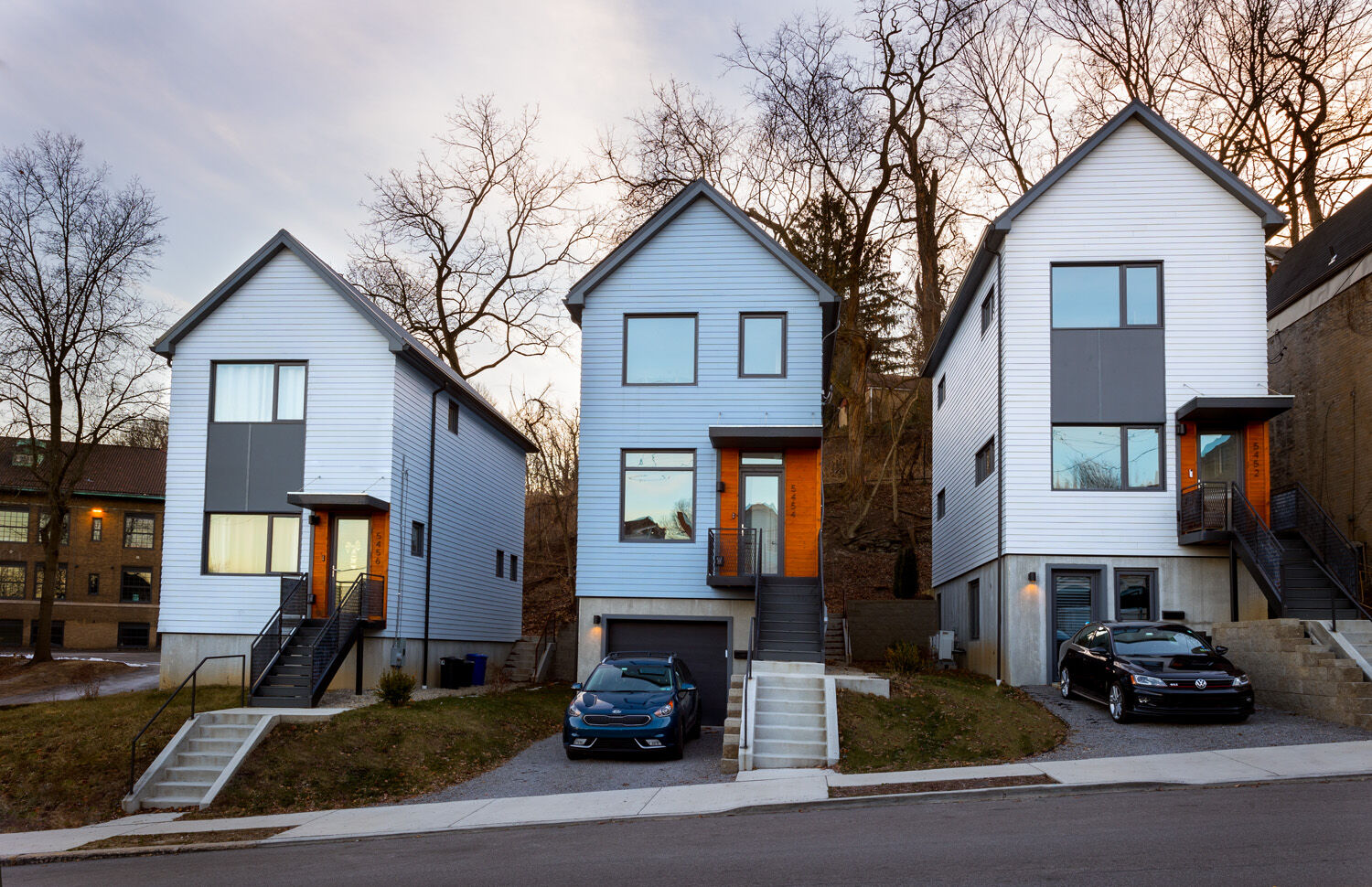

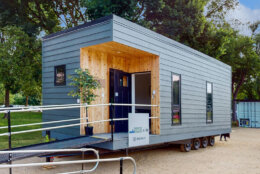
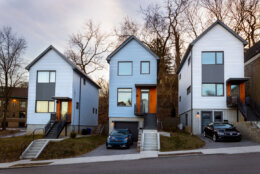
Housing in the D.C. area isn’t affordable, in part because there isn’t enough, but also because the cost of materials and labor is high. But a Pittsburgh company on the receiving end of a multimillion dollar award has plans to expand here, with a goal of helping find a solution.
Module is a maker of modular homes — prefabricated houses built in a factory somewhere and then shipped to their destination.
“When the homes are shipped to their end destination, the revenue is going back to that other location, the jobs that were supported by that worker in another location,” said Marquis Cofer, the director of development at Module. “And just a lot of the upside from the project is where the factory is located.”
A $3 million award from the Housing Affordability Breakthrough Challenge — led by Enterprise Community Partners and Wells Fargo — will be used to help Module expand into Prince George’s County. A permanent location is still being sought, but he said the hope is to build in a low-income area that’s also accessible to transit, so workers can easily get to work.
“What we’re trying to do is leverage all of the benefits of off-site construction, but doing so in a way that allows everyone to share in the benefit,” Cofer said. “So, distributing the involvement in the labor so that we could have more local participation, and really just yet not extract all of the value out back to a different community.”
The homes — ranging anywhere in size from 300 to 2,000 square feet — are targeted at lower-income families. In fact, Module doesn’t usually do direct to buyer so much as work with local governments, community land trusts and nonprofits that utilize grant money to help subsidize the purchase for the buyer.
“Most of the time, the organizations that are developing the homes are the ones receiving the subsidy,” Cofer said. “They’re passing along those savings to the homebuyer, who’s just buying the home outright, but at a lower cost below the cost of construction.”
The cost can vary for a lot of reasons, but he said usually the buyer is someone who tends to make around 60-80% AMI. He said one project in Pittsburgh saw a home sell to someone who took out a mortgage for $160,000, for example, which he said was still “way, way below the cost to build.”
This early in the process, it’s hard to predict what homes built around here would eventually sell for, since it’s not clear what programs are available or would be utilized.
“For us, it’s all about how can we have the biggest impact,” Cofer said. “In the end, the folks building homes in Prince George’s County and the folks living in Prince George’s County will tell us what’s needed and that’s what we will build. But the more homes we can build, the better. So, whether that’s scattered site developments, or whether it’s big blocks of townhomes, the only thing that we don’t really do is someone looking to build highly custom homes.”
Module also has plans to build new plants in Baltimore and Richmond. He said it’s clear there’s a need for more affordable housing options, especially in Prince George’s, but he cautioned that a company looking to sell around 100 new homes a year isn’t going to single-handedly fill that need.
“Module is not kicking down the door, coming to save the day,” Cofer said. “There are plenty of people already developing affordable homes doing a great job. Plenty of organizations are already training people in the trades, great workforce development programs. And so people are already doing the right thing. We’re just trying to find our place within that. We’re not looking to be a savior.”







